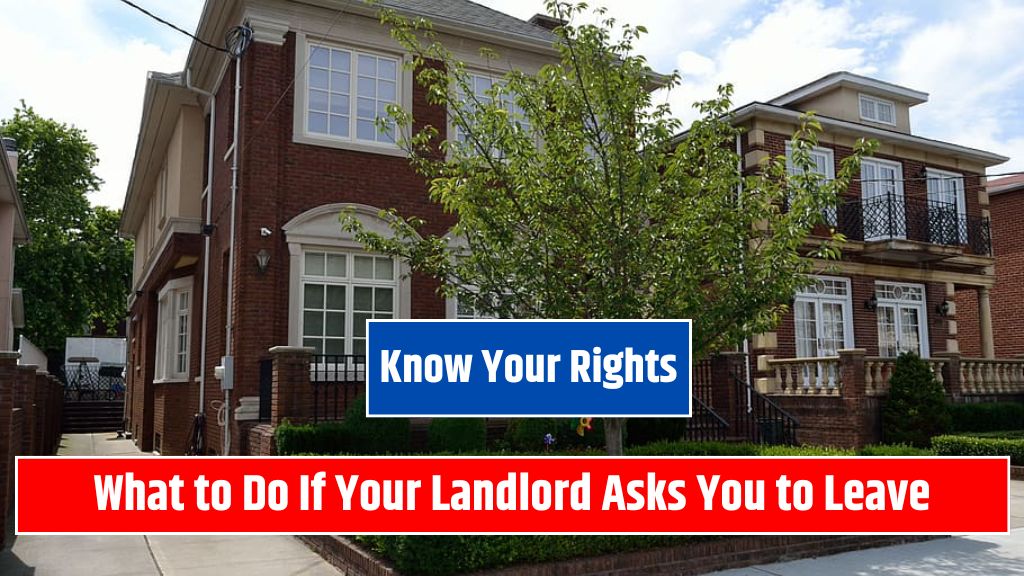Most tenants in England have an Assured Shorthold Tenancy (AST). There are two main ways a landlord can ask an AST tenant to leave:
1. Section 21 Notice (No-Fault Eviction)
A Section 21 notice allows a landlord to reclaim their property without providing a reason. This applies to:
- Periodic Tenancy (Rolling Tenancy) – A tenancy that continues on a month-to-month basis.
- Fixed-Term Tenancy That Has Ended – A lease that has reached the end of its agreed duration.
Conditions for a Valid Section 21 Notice:
For a Section 21 notice to be legally valid, the landlord must:
- Provide at least 2 months’ written notice.
- Ensure the move-out date is at least 6 months after your tenancy originally began.
- Have protected your deposit in a government-approved scheme (if applicable).
- Use the correct form to serve the notice.
Additional Protections for Tenants (After 1 October 2015):
If your tenancy started or was renewed after 1 October 2015, your landlord cannot evict you if:
- You reported a repair issue to the council, and the council took action against the landlord.
- The landlord failed to provide:
- The ‘How to Rent’ guide.
- An Energy Performance Certificate (EPC).
- A Gas Safety Certificate.
2. Section 8 Notice (Eviction for Specific Reasons)
A Section 8 notice is used when the landlord has valid grounds (reasons) for eviction. This applies even during a fixed-term tenancy.
Common Grounds for a Section 8 Notice:
- Rent arrears – If you have not paid your rent.
- Illegal activity – If the property has been used for activities like drug dealing.
- Property damage – If you have caused serious damage to the property.
The notice period depends on the reason for eviction. For example, rent arrears may require at least 2 weeks’ notice, while other grounds may require longer.
Eviction Rules for Other Types of Tenancies
Assured Tenancies
If you have an assured tenancy, your landlord must provide a legal reason for eviction, as stated in the Housing Act 1988.
Excluded Tenancies or Licences (Lodgers Living with Landlords)
If you live with your landlord as a lodger and share common areas (like a kitchen or bathroom), you have an excluded tenancy. In this case:
- The landlord only needs to give reasonable notice.
- The notice period is usually equal to the length of your rent payment period (e.g., one month’s notice if you pay rent monthly).
- The notice does not have to be in writing.
Non-Excluded Tenancy or Licence
For tenants who do not share living space with the landlord, the landlord must:
- Serve a written ‘notice to quit’.
- Give at least 4 weeks’ notice, though the exact period depends on the tenancy agreement.
Break Clauses in Tenancy Agreements
Some rental agreements include a break clause, which allows either the tenant or the landlord to end the contract early. If such a clause exists:
- The landlord can issue a notice to vacate after the break clause period has passed.
- However, a landlord cannot evict a tenant within the first 6 months of the tenancy unless they have a legal reason.
What Happens If You Don’t Leave?
If the notice period expires and you refuse to leave, the landlord cannot remove you by force. Instead, they must:
- Apply for a court order to start eviction proceedings.
- If necessary, get a bailiff to carry out the eviction.
Exception: Excluded Tenancies
If you have an excluded tenancy (e.g., a lodger living with the landlord), the landlord can evict you without a court order after giving reasonable notice.
Understanding your rights as a tenant is essential when facing an eviction notice. Always check if the notice is legally valid and whether the landlord has followed the correct process. If you’re unsure about your rights, seek legal advice or visit housing support services like Shelter for guidance.
FAQ’s
Can a landlord ask me to leave without notice?
No, a landlord must give proper written notice based on your tenancy type. Excluded tenants (lodgers) may receive verbal notice.
What is a Section 21 notice?
A Section 21 notice allows a landlord to ask a tenant to leave without providing a reason, as long as proper notice is given.
Can my landlord evict me for not paying rent?
Yes, landlords can issue a Section 8 notice if tenants have rent arrears. The notice period depends on how much rent is unpaid.
Do I have to leave if I receive an eviction notice?
Not immediately. If you do not leave, the landlord must apply for a court order to legally evict you.
What happens if my landlord didn’t protect my deposit?
If your deposit is not protected, a Section 21 notice may be invalid, and you may be entitled to compensation.
